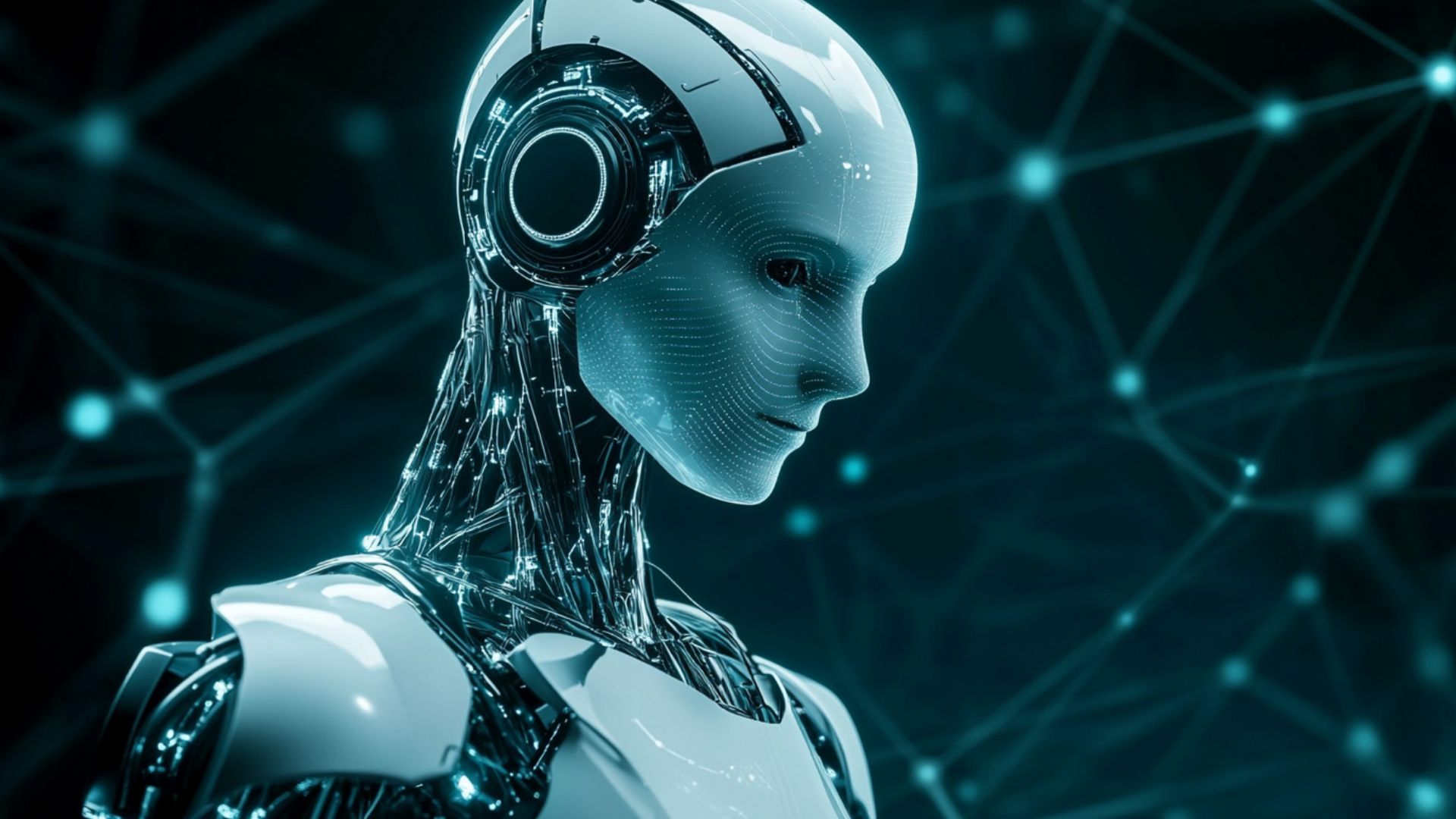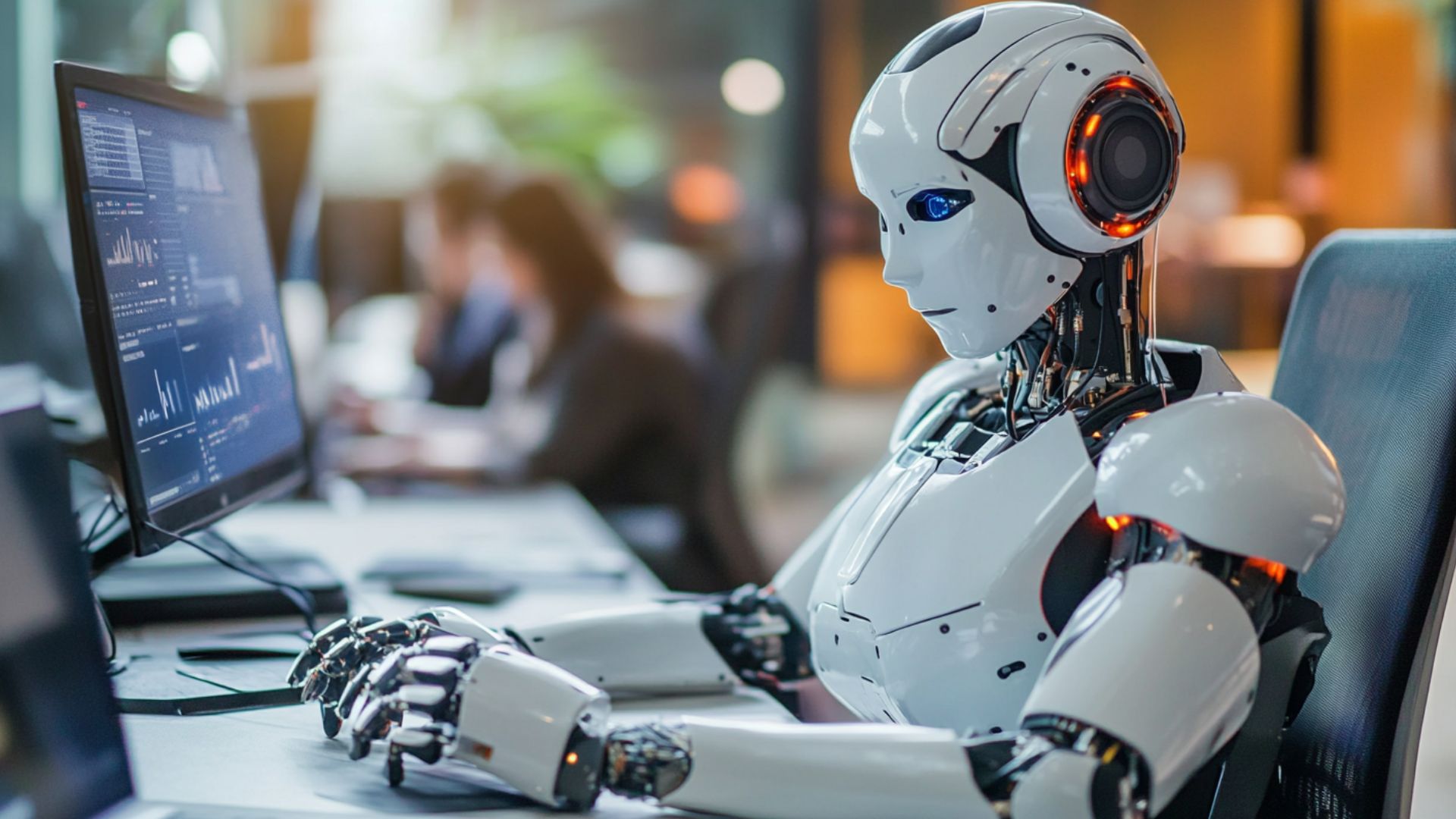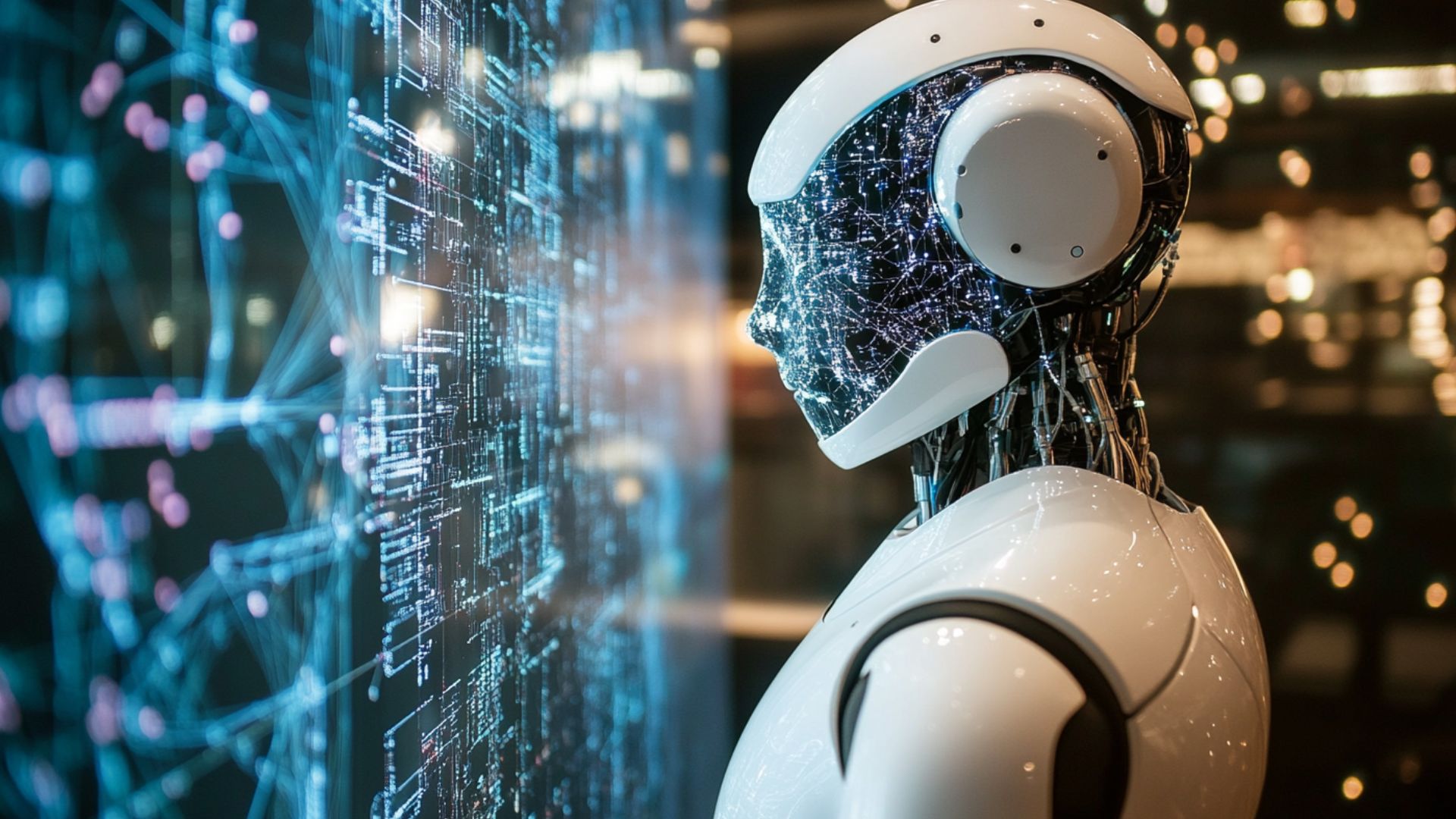Artificial Intelligence in the Workforce: Enhancing Productivity and Innovation

Technological advancement in society continues to accelerate. Technologies that demonstrate effective results deserve special attention. Many areas related to people are reaching a new level and becoming quite competitive. Highly qualified staff, advanced technology, and team training are an advantage. In general, these factors have a positive impact on operations and process productivity. AI is constantly improving and shows excellent results. Its integration into any field helps optimize and adjust work properly. Artificial intelligence in the workforce plays an important role. AI enables more productive work and saves time.
Employees can integrate artificial intelligence into their activities. AI processes massive amounts of data. Employees can devote time to equally important matters. Routine tasks are completed more efficiently with the help of the latest technologies. Machine learning and its algorithms can analyze data quickly and accurately. A significant advantage is the time that is greatly saved by integrating AI. The company gains more productivity by optimizing all work processes. Artificial intelligence deserves important attention in critical areas. Healthcare, medicine, and education often use artificial intelligence. Thanks to AI, these areas get good results from their work.
AI’s Role in Boosting Productivity in the Workforce
AI in the workplace plays a vital role in workflow productivity. Routine and repetitive tasks have often been performed by humans in the past. Nowadays, this process can be optimized thanks to machine learning and artificial intelligence. Multimillion-dollar data is being analyzed with extraordinary speed and accuracy. Advanced AI chatbots can quickly process any customer request. A person receives instant feedback that is clear and constructive. A good customer experience allows a company to gain productivity. Special AI tools are crucial in the workflow.
- AI in the workplace is popular due to its functions. AI-based tools can schedule various meetings and perform simple, repetitive tasks independently. There is an immediate increase in efficiency and productivity within the company. Continuous analysis of large datasets allow us to achieve optimal results. Analytics influences the analysis of what is happening in the market. It becomes possible for companies to control the entire process and receive feedback. The latest trends and user behavior for specific products are being researched.
- AI and work are closely interconnected through the input and analysis of multimillion-dollar data. Artificial intelligence plays a crucial role in reducing errors. Workflow optimization minimizes human errors. At the same time, employees can do no less important things. A prime example is the financial sector, where analytics and clarity play an important role. Another good example is the healthcare industry, where every mistake can be costly. AI examines all patient data and can provide a constructive response that doctors expect. It minimizes any risk and controls the entire process.
AI-Powered Automation in Daily Operations
It is interesting to explore the question “how to use AI at work?”. Employee training is integral to workplace productivity. Integrating AI helps to customize the entire process. AI-based tools are changing the way we look at the whole company. The tools can optimize many essential tasks. Here are some of them:
- Automation of administrative tasks. Notable chatbots and virtual assistants make sense in this regard. They help to automate common tasks that take a lot of time, tracking and analyzing high-value business metrics. AI-based assistants increase efficiency and reduce time spent. Workplace AI plays a significant role in achieving an effective and efficient outcome. Task automation helps employees to pay attention to other work.
- Data planning. Data is constantly analyzed and processed. Artificial intelligence can schedule data to increase productivity. AI-powered chatbots can handle a variety of customer requests. Customers, in turn, receive a response at any time convenient for them. AI-based tools can also schedule meetings and other essential tasks.
- Data entry. Another essential advantage of artificial intelligence is data entry. The question “how AI is transforming the workplace?” is often asked. The use of artificial intelligence and machine learning is essential. Machine learning allows you to maintain various data from documents or emails. The most important thing is to increase accuracy and perform a multi-routine complex task. Real-time work of artificial intelligence becomes a big step towards success. It helps to save time and reduce operational costs.
The Impact of AI on Decision-Making and Efficiency
Artificial intelligence in the workplace has a great impact on optimizing and improving work. AI also has an effect on business decision-making. Increased efficiency means a good result and an improvement in data analytics. Artificial intelligence, in turn, uses unique advanced algorithms. Chatbots and machine learning are tools for good productivity at work. Machine learning helps to analyze large amounts of data based on customer history. The whole process takes place in real-time, which makes it possible to make quick decisions. It is interesting to look at AI in workplace examples, and here are a few of them:
- Artificial intelligence does a great job with predictive analytics. Thanks to the constant analysis of millions of data points based on historical opportunities, offers are made. Researching various future trends allows business companies to offer the right product. This application is essential for retailers. Employees use artificial intelligence to research product demand. They study what exactly customers like. Based on their purchase history and data, companies can build their strategies.
- One of the ways to use AI at work is to apply forecasting. AI models predict the most essential business ideas. Usually, these ideas include sales, customer behavior of potential buyers, and revenue. Data analysis allows employees to select different strategies more efficiently. Work is efficiently distributed and responsibilities. It becomes possible to properly set up the budget and allocate resources for their sales. Constant real-time information allows business companies to keep a competitive edge.
Innovation in the Workforce Through Artificial Intelligence

By addressing the question “how to use AI at work?” You will understand how artificial intelligence works. Its use helps to customize and optimize the entire workflow. Artificial intelligence can analyze a large amount of data and reduce the time spent by employees. It is quite effective in saving time and avoiding any mistakes. Artificial intelligence can identify various patterns and ideas. It is widely used in many popular fields. With the help of machine learning, analysis is performed based on company and customer data. It becomes possible to make decisions based on this data and offer the right one. Here are the leading AI in workplace examples in various fields:
- Product development. Artificial intelligence collects data about customers and what they like. Based on this, it becomes possible for companies to research and offer what they need. Companies address the issue and design good products based on consumer preferences. They usually meet customer preferences and are popular.
- Customer service. Creating virtual assistants and chatbots helps to customize the workflow. Customers get a good impression of cooperation and quick, straightforward answers. Artificial intelligence can process natural voices, which makes customers feel comfortable. 24/7 customers can get constructive and good answers to their questions.
- Marketing. A vivid example of the question “what is AI in the workplace?” is marketing. Unique campaigns and data analysis are conducted with the help of artificial intelligence. Analysis of user behavior helps to predict future good trends. Creating ads that will interest potential users is an integral part of work productivity.
Artificial intelligence perfectly emphasizes its effectiveness in other areas. Finance, manufacturing, and healthcare are perfect examples of how artificial intelligence works. In these areas, AI allows you to give accurate answers without avoiding any mistakes. Increasing efficiency and reducing time consumption will enable companies to show excellent results.
AI in Product and Service Innovation
Workplace AI is aimed at improving the company's position and competitiveness. Artificial intelligence is an integral part of creating new products and services. Based on a lot of data, research is conducted on what is relevant now. Communication with customers will definitely allow you to reach a new level. Special AI-based investment tools are used to create products. Some companies use artificial intelligence to assess a person's creditworthiness.
- Artificial intelligence in the workplace in banking allows us to explore this issue in detail. Loans are provided to people who really have the potential to work and the ability to repay them. However, this business has also undergone a transformation. Financial assistance is often provided for disadvantaged groups.
- A good example is artificial intelligence-based retail. Machine learning algorithms analyze multimillion-dollar data. They analyze what people like and offer relevant content based on it. A good example is Netflix, which offers similar movies or TV series based on people's previous viewing.
- Another bright workplace technology example is Tesla. Artificial intelligence is used for autonomous driving systems. Maintaining complete comfort and safety for humans is the most important thing. The company offers advanced features that are safe and comfortable in their cars.
AI and Organizational Transformation
Artificial intelligence in the workforce plays a huge and vital role. AI completely changes the way businesses work and all its hidden details. Automation of work processes helps to focus attention on something important. There is an analysis of multi-million data and quick information for the company. Organizations can rethink their activities and maximize efficiency. A vivid example is the supply chain list, where artificial intelligence takes over. AI tools can analyze all operational data in real-time. It becomes possible for employees to track inventory levels and forecast popular products and potential failures.
- It is interesting and important to understand "how does AI affect the workplace". The entire work process is automated, which allows you to avoid any errors. Customer interaction is a key component of AI implementation. They should get a good experience and contact us again for the service. Creating notable chatbots and virtual assistants helps in this process. The client can get a response at any convenient place and time. Spotify is a prime example of how a person can get recommendations based on their taste preferences.
- It is also interesting to know "how AI will change the workplace". Continuous data analysis helps a company understand its future needs. The company makes decisions about employees and their number. Artificial intelligence helps to emphasize the working capacity of each person. Analysis of employee productivity data allows a company to evaluate its performance.
Challenges and Ethical Considerations in Implementing AI in the Workforce

Artificial intelligence and machine learning are ideal tools for productivity at work. They offer many benefits that positively affect work processes. Work process optimization, improved efficiency, and time-saving. For many areas of employment that collaborate with people, the use of artificial intelligence is essential. AI tools for work help to achieve goals with maximum efficiency and avoid any errors. Today, the question remains open about some problems related to artificial intelligence. Often, employees may ask whether artificial intelligence will take their jobs. Continuous improvement and technology occupy a prominent place in any field. There are fewer and fewer employees because work is being automated. Special training and education activities are being conducted to adjust employees. It is better for employees to understand that artificial intelligence is only a tool to improve work. It is not a full-fledged replacement for a person for an excellent result. Here are some other main problems related to artificial intelligence:
- Ethical considerations. AI in the workplace helps to really optimize and customize the entire work process. However, the ethical issue remains open today. There are some questions about making decisions related to artificial intelligence. Artificial intelligence systems contain a large amount of data. Bias can affect hiring decisions and promotion. It is important to understand that all results and research will be as transparent and open as possible. For a person, artificial intelligence is a tool exclusively for achieving specific goals. Understanding AI's transparency and reliability is an excellent result.
- Technical complexity. Another issue that arises today is technical complexity. Most areas are set to work according to old standards. They use their technological knowledge and their work. AI and work are interconnected, and this novelty can be intimidating. The first thing that raises questions is investment. In the beginning, they can be really substantial. However, it is worth remembering the success of artificial intelligence and its productivity in the future.
- Data confidentiality. For full-fledged work, artificial intelligence uses a vast amount of data. It can concern both the company and potential customers. Often, this issue causes excellent concern about maintaining data confidentiality. There is a risk of job displacement because artificial intelligence automates all tasks. Constant development and improvement allow us to maintain data confidentiality issues. Artificial intelligence does use them, but it works cleanly and transparently.
Future Trends: AI in the Workforce
There are a huge number of pros of AI in the workplace. Artificial intelligence helps to really customize and optimize the entire work process. AI makes it possible to understand deeper cooperation with customers. Constant development and improvement make it necessary to understand more and more issues of AI. Its systems and Introduction to the course of work of employees are an integral part. In the future, artificial intelligence will become not just a tool for ordinary data processing and task performance. It will be a great advantage and be essential in any decision-making process. It will help increase the productivity of any company and make it even more competitive.
- The future of artificial intelligence really guarantees improved results. The benefits of AI in the workplace cannot be a surprise. One of them in the future is the ability of artificial intelligence tools to check resumes independently. Using such work will help employees focus on something else. Artificial intelligence will be able to independently check a large number of resumes and select the best candidates. It improves its efficiency and programmatic learning through constant updating. The process of training and planning the workforce also occupies a prominent place.
- It becomes possible to explore the issue of the future workforce. Artificial intelligence will help not only automate the entire work process but also work together with people. Using AI in the workplace will give maximum benefit and productive results. Artificial intelligence will be able to rely on even more routine tasks and processing big data. Obtaining the correct and minimized error result will become an integral part. Increased productivity, improvement, and effectiveness are the main goals. The most important thing is the cooperation of AI and people to achieve superior results. Adaptation in the world of technological changes will allow companies to be leaders.
Preparing the Workforce for an AI-Driven Future
AI in the workplace can improve results by automating work processes. Artificial intelligence is becoming increasingly integrated into the workplace. To understand how artificial intelligence works, the most important thing is to retrain employees. Continuous learning and the latest tools for understanding are key. Training programs focused on technical news will help employees work with artificial intelligence. Skills will become an integral part of working for a productive result. An essential part of managing this approach is the vision of cooperation. A person who understands how artificial intelligence works can show good results.The synergy between employees and artificial intelligence will become an integral part of work. Integration of artificial intelligence in the workplace improves work results. Technologies have the ability to develop very quickly and integrate into any field. Employees must understand this issue and treat it responsibly. Continuous improvement, special courses, and seminars will help them understand this.


